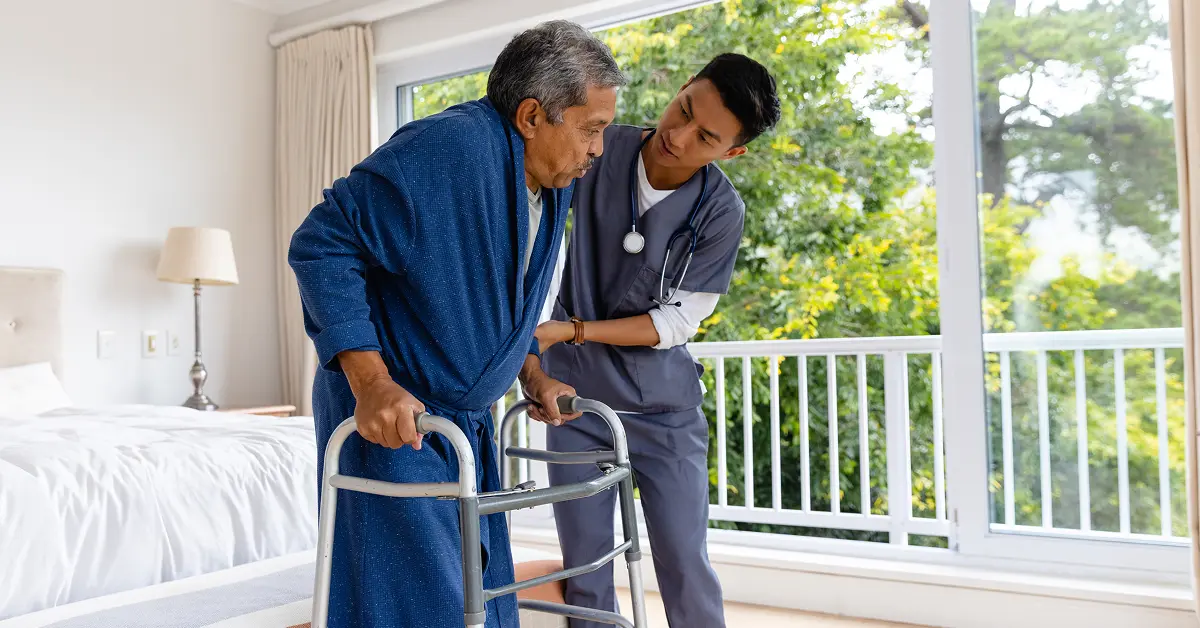Recovering from a hospital stay can be overwhelming, both physically and emotionally. Whether you’ve undergone surgery, been treated for an illness, or delivered a baby, proper discharge recovery support at home is crucial for your health and peace of mind. The right assistance can help you follow medical advice, manage medications, and regain independence faster. Here’s a comprehensive guide with essential tips for finding reliable discharge recovery help near you.
Understand Your Needs First
Before searching for recovery help, assess your specific requirements. Recovery needs vary depending on the condition or procedure you underwent. For instance:
- Post-surgery patients: May require wound care, medication management, and assistance with mobility.
- Elderly patients: Might need help with daily activities such as bathing, dressing, and meal preparation.
- New mothers: May require support with newborn care, breastfeeding guidance, and postnatal care.
Listing your exact needs will help you communicate clearly with potential caregivers or agencies and ensure you get the right support.
Search Locally for Trusted Providers
When it comes to post-Hospital Discharge , proximity matters. A caregiver or agency located near you can respond quickly in emergencies and provide timely services. Start by searching online with keywords like “discharge recovery help near me” or “home care services near me.” Local hospitals, clinics, or nursing homes often maintain lists of trusted home care providers.
Check Qualifications and Experience
Not all home caregivers have the same training or expertise. When evaluating potential candidates or agencies, verify:
- Professional certifications: Look for nurses or caregivers with recognized certifications in home healthcare or patient care.
- Experience: Prefer caregivers who have experience with your specific condition or recovery needs.
- Specialized skills: Some patients may require physiotherapy, respiratory support, or chronic disease management; ensure the caregiver is trained in these areas.
A qualified and experienced caregiver can prevent complications and promote faster recovery.
Read Reviews and Testimonials
Word-of-mouth and online reviews can give insights into a caregiver’s reliability and professionalism. Ask for references from previous clients or check reviews on Google, social media, or healthcare platforms. Positive feedback about punctuality, communication, and patient care is a good indicator of trustworthiness.
Conduct In-Person Interviews
Meeting potential caregivers in person is crucial. During the interview:
- Ask about their previous experience and training.
- Discuss your specific needs and see how they propose to handle them.
- Observe their communication skills, patience, and empathy.
A caregiver who communicates well and shows genuine concern will make your recovery process smoother and more comfortable.
Evaluate Compatibility
Recovery is not just physical; emotional support matters too. Choose someone who can build a rapport with you or your loved one. A caregiver who is compassionate, patient, and understanding will help reduce stress and improve mental well-being during recovery.
Clarify Costs and Service Packages
Home care services can vary widely in pricing. Before hiring, discuss:
- Hourly rates or full-day packages
- Additional charges for night shifts or emergency visits
- Inclusions such as physiotherapy, medication management, or meal preparation
Getting a clear understanding of costs upfront avoids surprises later and helps you choose services that fit your budget.
Verify Legal Compliance
Ensure that the caregiver or agency follows legal and regulatory requirements. This includes:
- Background verification of the caregiver
- Health certifications, including vaccination records
- Licensing or registration of the home care agency
Legal compliance ensures that you are hiring a trustworthy professional and protects you from potential risks.
Start with a Trial Period
If possible, arrange a short trial period before committing long-term. A trial allows you to observe the caregiver’s skills, reliability, and compatibility with your routine. It also gives you an opportunity to address any concerns before finalizing the arrangement.
Establish Clear Communication
Effective communication is key for successful discharge recovery. Set expectations clearly regarding:
- Daily routines and tasks
- Medication schedules
- Signs of potential complications and when to alert a doctor
Maintain open lines of communication with the caregiver, family members, and your doctor to ensure coordinated care.
Utilize Technology for Monitoring
Many home care agencies now offer digital tools for monitoring patient progress. Apps or devices can help track medication intake, vital signs, or physiotherapy exercises. Technology ensures caregivers follow instructions accurately and provides family members with real-time updates.
Prepare Your Home for Recovery
Creating a safe and comfortable environment at home can enhance recovery. Consider:
- Clear walkways and non-slip mats
- Proper lighting in all rooms
- Easy access to essentials like medications, water, and medical devices
A well-prepared home reduces risks of falls, injuries, or missed treatments.
Plan for Emotional and Mental Support
Recovery can be mentally challenging, especially after prolonged hospitalization. A caregiver who offers emotional support, engages in conversations, and encourages light activities can significantly improve morale and speed up recovery.
Stay Involved in Care
Even if you hire professional help, remain actively involved in your recovery process. Monitor the caregiver’s work, ask questions, and stay updated on your progress. Active involvement ensures adherence to medical advice and fosters trust between you and the caregiver.
Review and Adjust Care Plans
Recovery needs may change over time. Periodically review the care plan with the caregiver and your doctor. Adjustments may include:
- Increasing or decreasing care hours
- Adding specialized therapies
- Modifying daily routines
Regular reviews ensure your recovery support evolves with your health needs.
Final Thoughts
Finding the right discharge recovery help near you requires careful planning and research. By understanding your needs, verifying qualifications, checking references, and ensuring clear communication, you can hire a caregiver who provides both physical and emotional support. Proper discharge recovery help not only promotes faster healing but also ensures safety, comfort, and peace of mind for both patients and their families.
Taking the time to choose the right professional today can make a significant difference in your recovery journey tomorrow.
Contents
- Understand Your Needs First
- Search Locally for Trusted Providers
- Check Qualifications and Experience
- Read Reviews and Testimonials
- Conduct In-Person Interviews
- Evaluate Compatibility
- Clarify Costs and Service Packages
- Verify Legal Compliance
- Start with a Trial Period
- Establish Clear Communication
- Utilize Technology for Monitoring
- Prepare Your Home for Recovery
- Plan for Emotional and Mental Support
- Stay Involved in Care
- Review and Adjust Care Plans
- Final Thoughts
Our 24*7 services
Latest Posts
- What Is Respite Care and Why Is It Important
- Affordable home care for senior citizens in India
- Caring for Seniors with Dementia or Alzheimer's at Home
- Senior Caregiving A Guide for Every Family
- How to Write a Caregiver Resume That Gets You Hired
- How Care After Hospital Discharge Speeds Up Recovery at Home
- How to Get Home Health Care for Seniors Through Medicare
- What Does a Senior Citizen Caregiver Really Do at Home
- How to Care for Elderly Parents with Alzheimer’s or Dementia
- How to Get 24-Hour Care for Seniors at Home



